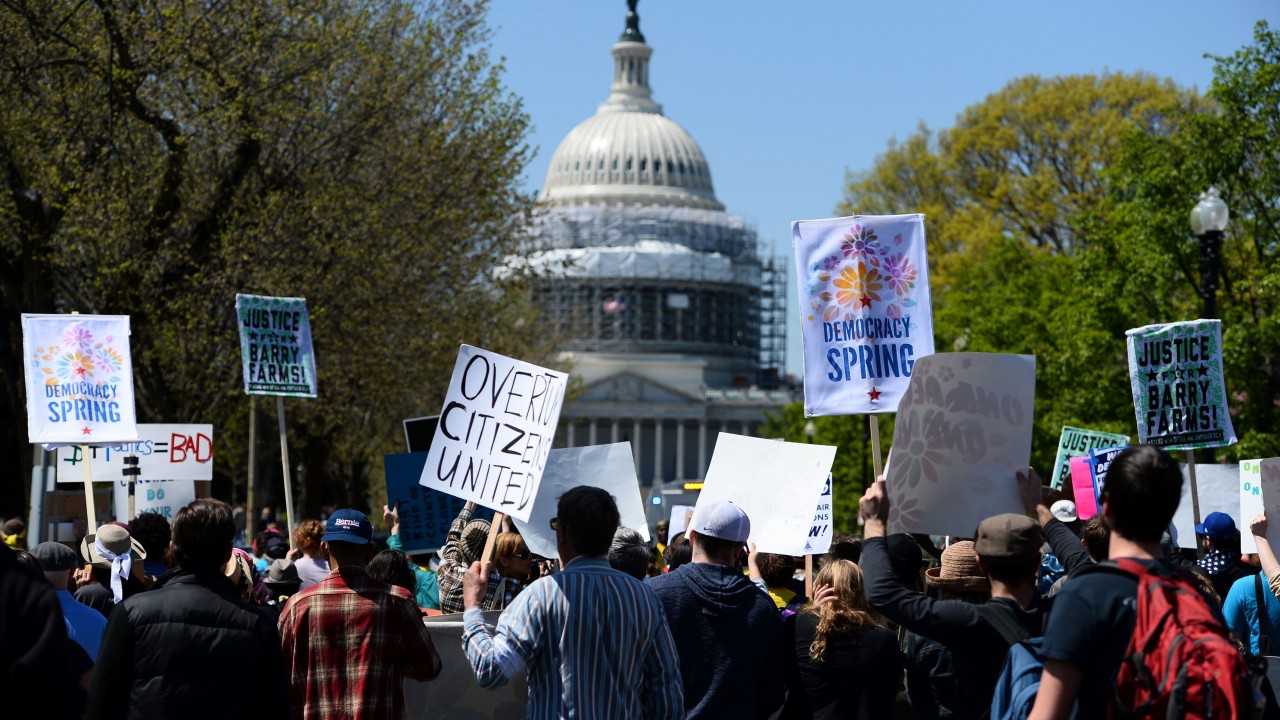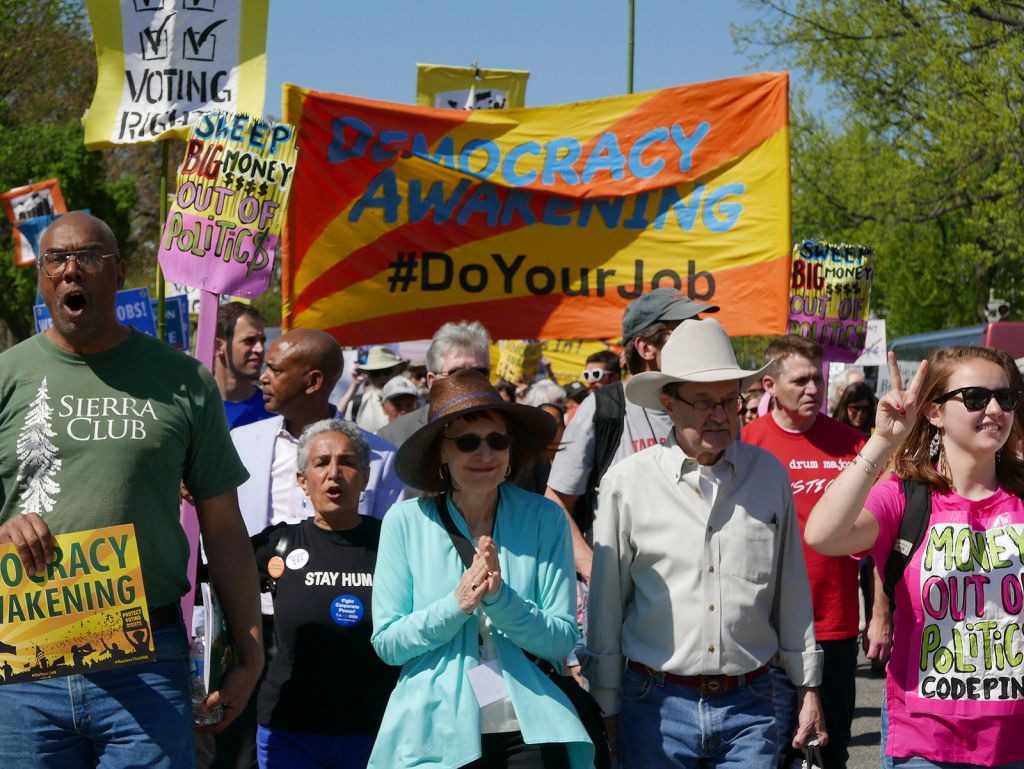
Sunday marked the largest of a week's worth of marches on the Capitol, calling for change in laws governing voting and campaign finance. (Photo by Andrew Caballero-Reynolds/AFP/Getty Images)
Chanting “Our Capitol!” and “Our Congress!” in a colorful parade that stretched from the top of Capitol Hill to its base, an unusual mix of demonstrators on Sunday managed to turn the too often esoteric issues of campaign finance and election law into matters worthy of genuine passion.

Thousands of people gathered for a rally and march under the sister mobilizations of Democracy Spring and Democracy Awakening. (Photo: Susan Melkisethian via Flickr / CC 2.0)
On the penultimate day of a week of activity designed to focus attention on the erosion of political fundraising regulations and voting rights laws, about 1,500 gathered to give voice to views that, according to most polls, vast majorities of Americans support.
While that crowd may not have been anywhere near record-breaking on a national Capital Mall that has seen Million Men marches and two Obama inaugurals, it was enough to buoy the spirits of those who for decades have waged a lonely battle to reform the nation’s political system.
Back in 2000, when 90-year-old Doris Haddock, better known as “Granny D” for her coast-to-coast march for campaign finance reform, was arrested at the Capitol, only a few dozen joined her, recalled Nick Nyhart, head of Every Voice Center. Already, nearly 1,000 demonstrators have been arrested this week for voting rights and campaign finance reform. “This is an order of magnitude bigger than anything I’ve seen in many years,” said Nyhart.

Washington DC, April 17, 2016. (Photo: Susan Melkisethian via Flickr / CC 2.0)
On Monday, demonstrators plan to continue to engage in civil disobedience outside the Capitol while others go inside to lobby members of Congress.
“I would be proud to have every one of you sitting in the cell next to me,” Chris Shelton, president of the Communications Workers of America, declared. “I beseech you to show up tomorrow and get arrested.” Shelton, who said 200 of his union members plan to risk arrest, vowed it will send a message to lawmakers that it’s time to “get off your ass and change what you’re doing.”
The Monday activities will mark the last formal day of protests by Democracy Spring and Democracy Awakening, two efforts that have brought thousands of people to Washington to press for passage of four bills focusing on campaign finance reform and voting rights, and for the US Senate to take up President Barack Obama’s nominee for the Supreme Court, Merrick Garland. The legislation would:
- Repeal the Supreme Court’s decision in Citizens United that opened the door to unlimited corporate campaign giving;
- Establish a public financing mechanism for congressional races designed to encourage small donors;
- Repeal the Supreme Court decision rolling back voting rights protections;
- Make it easier to register to vote and cast a ballot.
More than 200 organizations are supporting Democracy Awakening and while most backers of the movement are on the progressive side of the spectrum, Democracy Spring was joined by some conservatives on its march from Philadelphia to Washington.
More impressive than the numbers, organizers of the protest said, was its diversity. The crowd, which enjoyed picnic-perfect weather by the side of the Capitol Reflecting Pool, heard from speakers representing government watchdog groups, environmental organizations, the gay rights movement and civil rights veterans. One of the latter, Rev. William Barber, a founder of North Carolina’s “Moral Mondays” movement, said it will take a “fusion” of progressive white, Latinos and blacks to push back efforts by conservatives to “lock up the South for another generation.”
“This is a racial and class warfare on our democracy,” Barber proclaimed. “Wake up America! It’s our time! This is our Selma!”
Members of the audience reflected the range of interests that are now being brought to focus on what Rob Weissman of Public Citizen described as a “rigged political system.”
“The key issue is this money thing,” retired Philadelphia architect Bob Pistelli said when asked why he was marching. “It’s something that’s causing things to slow down and stop” in the political system, added Pistelli, who said he’s looking for a way to give politicians a forum other than 30-second political commercials. He said such ads have just given rise to a culture of deception: “You can sell anything if you put enough money behind it and repeat it enough times.”
For Nisha Witt, an engineer running a solar technology business in Norfolk, Virginia, it was the power of big energy companies that stirred her anger and brought her to the march. “We’ve got corporate money persuading the people we put into office that fossil fuels is the way to go,” said Witt, a Sierra Club member. “I was definitely excited to come. It gets people to wake up.”




